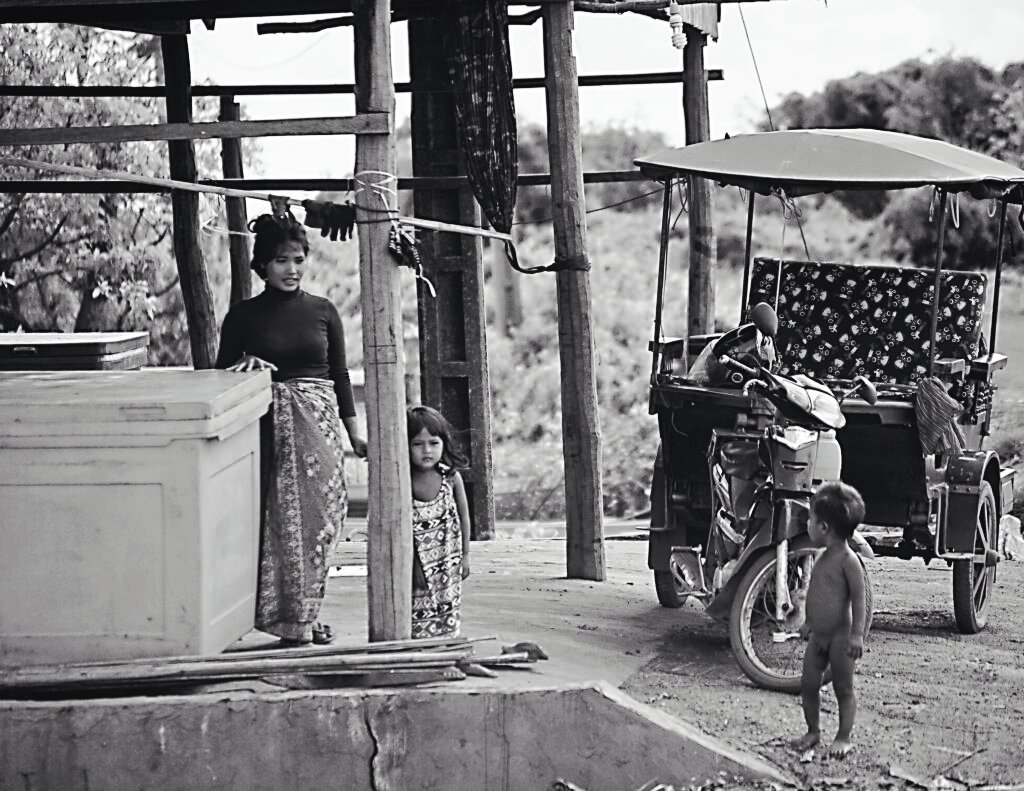
In the shifting light of dawn over Tonlé Sap Lake, where the water breathes in and out with the seasons and the sky feels just inches above the waterline, a young woman named Sopheap watches over her children. She is twenty-eight, though the lines beneath her eyes speak of more years than that. Her hair is tied back with an old rubber band, frayed from sun and soap. One hand grips a small metal bowl of rice; the other shields her two children from a swarm of flies.
Bunna, her son, is three–with no clothes to bind him, skinny, legs streaked with dried mud. His sister Reyna, is not much older–wide-eyed, quiet, and always by her mother’s side.
Sopheap lost her husband two floods ago. He went out with three others to check the nets during a storm and never came back. They said the boat capsized. She never saw the body. Now, she does everything: sets shrimp traps at night, washes tourists’ laundry when the boats come, gathers firewood from the mangroves, dries fish on bamboo racks, sells fried snails to passing boats. Sometimes, she paddles two hours just to buy medicine when Bunna gets a fever.
They sleep on a mat. Eat once, maybe twice a day. A meal might be rice and dried snakehead, or just boiled lily stems. Meat is for weddings or funerals. Still, Sopheap teaches her children to wash their hands in the lake, to greet monks with bowed heads, to say “Akun” (thank you) even when there’s nothing to give.
Tourists pass by sometimes, clicking cameras from the longtails. Some wave. Some throw candy. Once, a woman gave Sopheap a pair of children’s shoes—pink, glittery, too big for Reyna now, but safely tucked away in a woven rice sack. For later.
At night, Sopheap sings lullabies her mother once sang—songs of rivers, buffalo, and moonlight. Her voice is low, raspy from the smoke of the cooking fire.
The lake reflects her face in the stillness. Tired. Steady.
She knows life is harsh here, unchanging like the rhythm of paddles on water.
But each day, she rises.
Feeds her children.
Fights the mosquitoes.
Greets the sky.